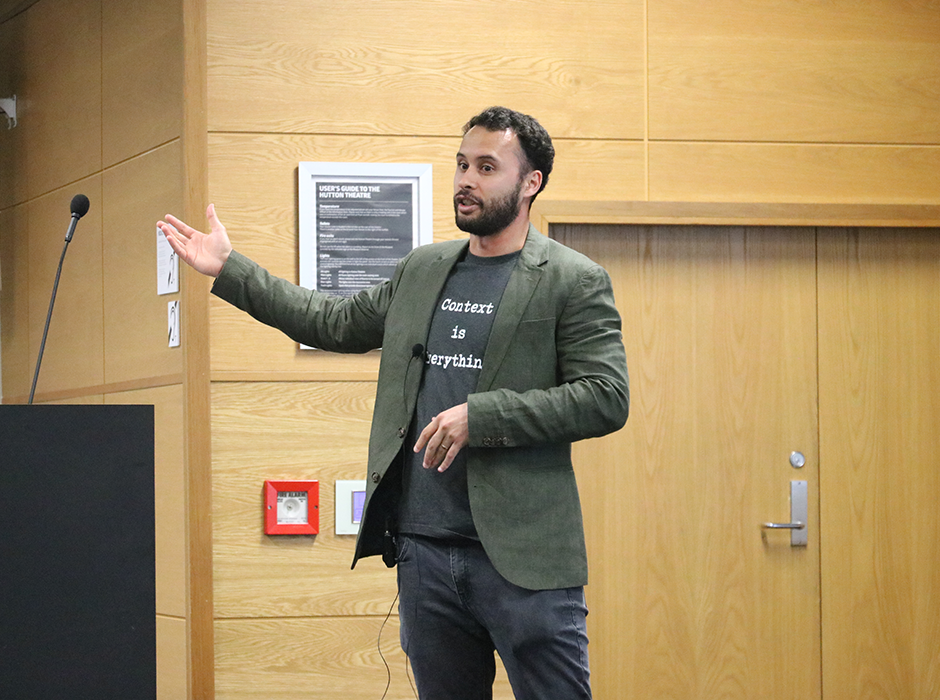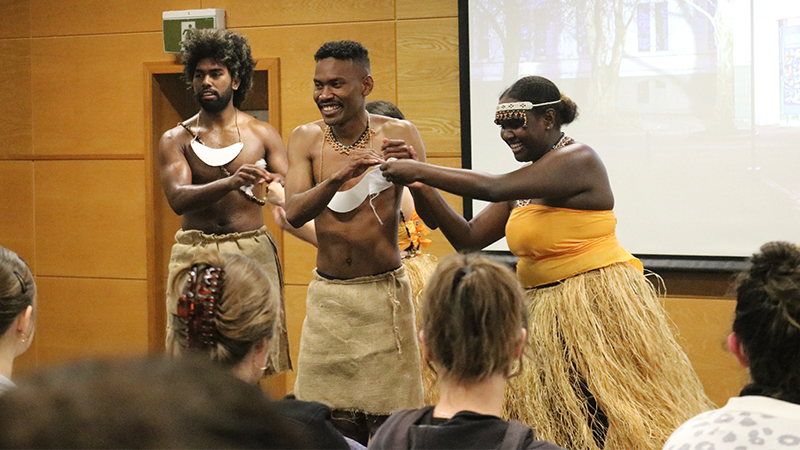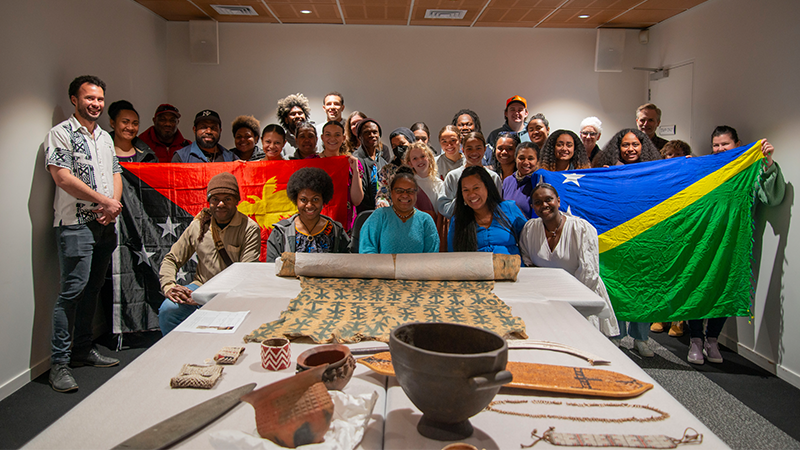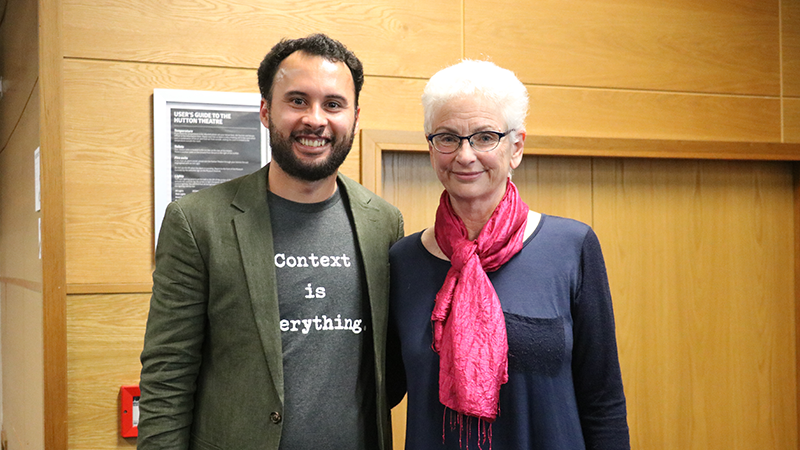
Dr Charles Radclyffe delivering his address at Tūhura Otago Museum.
A Pacific academic has endeavoured to build a bridge between indigenous peoples and their “not-so-buried treasure”.
In a public lecture of the same title, Dr Charles Radclyffe, who recently became the University’s first Pacific lecturer in archaeology, presented the annual H D Skinner Memorial Lecture for 2023, hosted by Friends of Tūhura Otago Museum.
His talk was about repatriation, the contentious relationship between museums and indigenous peoples and the potential for collaboration with Pacific communities in the future.
Dr Radclyffe shared with those gathered that this was a part of an age-old global conversation surrounding the role and responsibilities of a museum that was partly reignited by the death of African American man George Floyd, who was murdered while being arrested by Minneapolis police in 2020, and the vandalism of historical monuments that ensued.
This is an opportunity for museums to consider questions of ownership and imagine new realities in terms of collaboration with communities, he says.
Dr Radclyffe opened his lecture with a performance by the Otago Melanesian Islands Students’ Association.
His lecture was inspired by a recent private community viewing of stored Melanesian collections held last month at Tūhura Otago Museum. The viewing was highly attended by the Dunedin Wantok community, made up of residents and students mainly from the Solomon Islands, Papua New Guinea and Vanuatu.
This created the opportunity for the Museum and the Wantok community to connect meaningfully and understand the contexts and sensitivities surrounding the artefacts.
He hopes the bidirectional benefit of such viewings will serve as a blueprint for “what restitution can look like when it considers the cultural values of reciprocity, forgiveness and ‘frensip’ (friendship) for Pacific communities”.
“It’s not just about taking back ownership of artefacts, but about righting the wrongs of the past so that we can look positively towards the future when it comes to repatriation,” Dr Radclyffe says.
Henry Devenish Skinner (1886-1978) was the first lecturer of anthropology at the University of Otago and wider Australasian region, and made substantial contributions to the collections of Tūhura Otago Museum and the Hocken Library while they were owned by the University.
- Kōrero by Keilah Fox


